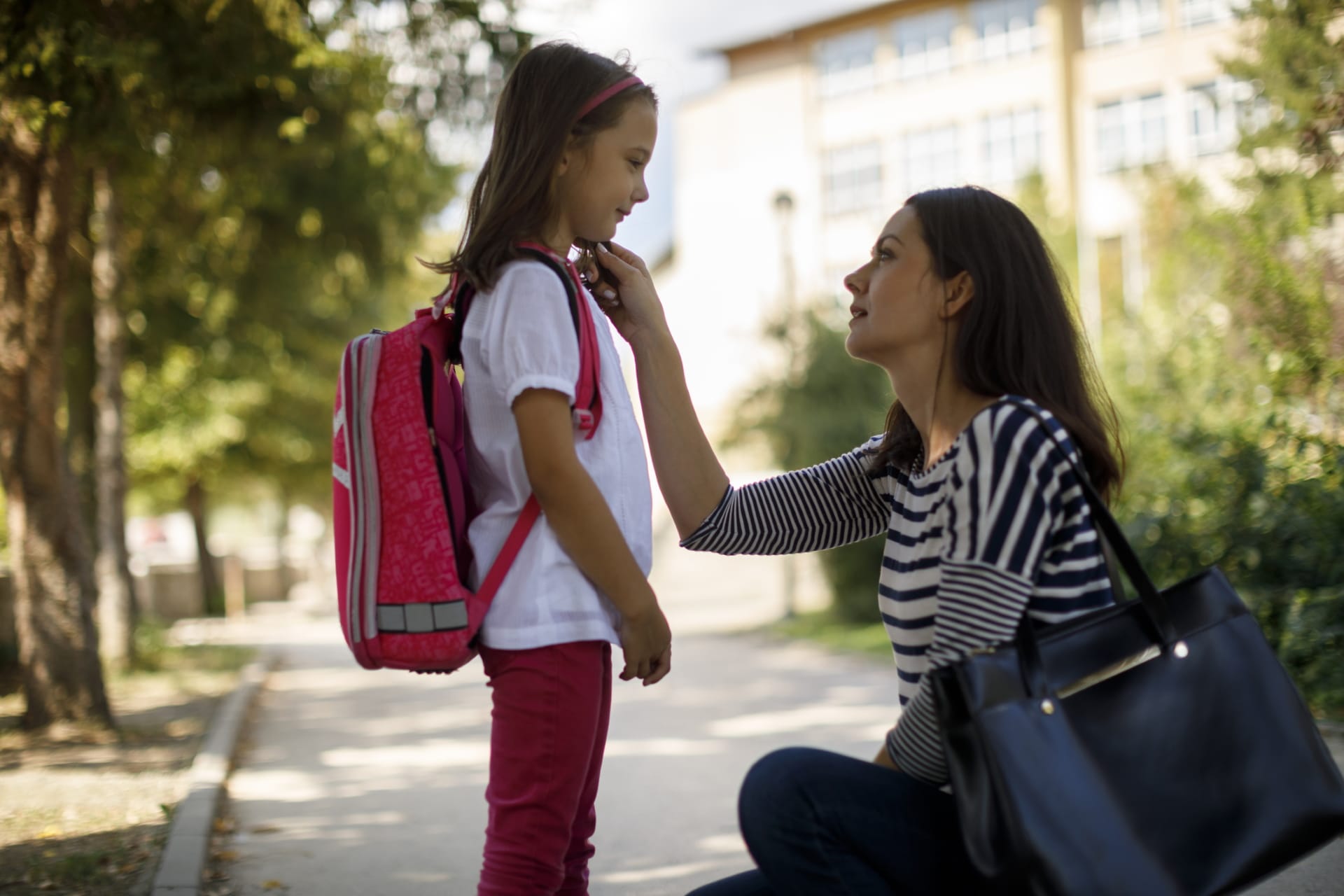sponsored
6 min Read
Five Surprising Things to Know About Starting School

October 13, 2020
sponsored
6 min Read

October 13, 2020

Anyone with school-aged children has experienced the panic before kindergarten starts. September arrives and you look over at your sweet little three-year-old and think, “Oh my goodness, what have I been doing all this time?! We should have been practicing printing, learning numbers, memorizing the national anthem, maybe working on a little advanced calculus…”
Okay, maybe not the last two. But the truth is, if you take a second look, we’re betting your little one is showing more signs of kindergarten readiness than you might have noticed. Things like exhibiting an ability to self-regulate, pushing for independence, being able to follow instructions (most of the time!), expressing themselves appropriately—these are all things that will help lead to classroom success. So, relax: You’re doing a great job, and we know you’re doing your best to prepare your little one for the year ahead. (Especially in these uncertain times, where we’re adding mask-wearing and extra hygiene to the mix!)
But if it’s a surprise that knowing the ABCs and 123s aren’t pre-requisites for starting kindergarten, we’ve got a few other lesser-known tidbits for you to put in your back pocket for the first few weeks of school. Read on for the goods.
Your fully potty-trained child may have an accident from time to time.
There’s a reason kindergarten teachers ask you to send a change of clothes in your child’s backpack. Even children who have been toilet-trained for years are known to have an accident at school once in a while. There are many reasons for this: The bathroom isn’t in the classroom and they miscalculate the time they’ll need to get there; they’re nervous to ask for a bathroom pass; they are distracted by what’s happening in the classroom; or perhaps they even struggle to get clothing unbuttoned or unzipped on their own. Don’t panic and think a bag of wet clothes coming home is a sign of regression; it’s usually just a sign of adjustment. If the issue persists, speak to both your child and their teacher to get to the root of the problem. There may be an easy fix. You can also contact your kiddo’s primary care physician if you think there may be a medical concern.
Your child may not eat as much lunch as you’d like.
Full lunch boxes at the end of the day are super frustrating for parents everywhere. You know your kid likes what you’re packing for them yet it seems like they’ve only nibbled at their sandwich or consumed a single carrot stick. It is possible their tastes have changed — especially if this becomes apparent after a few weeks of similar lunches — but more likely, they just haven’t adjusted to the distractions of lunchtime in the classroom, or to the time allotted to finish their meal. If you’re confident the food isn’t the problem, try playing “Lunchroom” at home on the weekend. You can set a timer for the number of minutes they have at school and sit down to eat together. Let the regular kid chatter flow but remind them of how many minutes they have left as the clock winds down. They’ll start to get a sense of the appropriate focus and pace required.
Your usually energetic, bubbly kid may come home from school beyond exhausted.
Don’t be alarmed if your child comes in from school and falls asleep on the couch mid-Paw Patrol episode. So many three- and four-year-olds would have had an afternoon nap right up until weeks before school starts, so making it through to dismissal time is a feat. Plus, they are learning new things all day long, and all of that stimulation takes its toll. If after-school snoozing is an issue that starts to affect bedtime, consider an activity or outing right after pickup to keep them energized; then move bedtime up so your child gets the consistent sleep they need.
Your little one may be a hot mess after being at school all day.
This is very common in young kids, and there is a reasonable explanation: Your child has been keeping it together—emotionally, physically and intellectually—all day at school. Once the decorum of the classroom is no longer required, they allow themselves to let their guards down. This may mean tantrums, obstinance, refusing to listen and more. Parents often reach out to teachers to find out if this behaviour is happening in the classroom only to learn their child is a model student. The term for this post-class meltdown is after-school restraint collapse, and for some kids, it’s a regular occurrence. For others, it only happens sporadically, after a particularly long or difficult day. Some parents find that planning an activity to allow their child to decompress—like a park visit or a bike ride—helps to diffuse the behaviour, while for other kids, one-on-one time and a quiet cuddle is required. The trick is not to take it personally, because it actually means your child feels that you and your home is their safe place to let go.
You are the backbone of your child’s education (and it starts early!).
Taking an interest in your kiddo’s school life is an important part of their education, from paying attention to what they’re studying to volunteering in the school (as soon as we’re allowed again!). If you ask about what they’re learning and listen in an engaged way, they’re more likely to come to you when they have questions or need a hand. Keep this in mind from Day One. If you show you’re invested when they’re little, they will be more likely to come to you when they’re big. Because it’s kindergarten today, but they will be graduating high school in the blink of an eye. You can even use the first day of kindergarten as your marker for starting to save for their post-secondary education — even a little goes a long way!
Let Them Dream Big…
…without worrying about how to pay for it.
Nearly every career out there requires post-secondary training, and while it might seem like your little one is forever away from donning a cap and gown, it’ll be here before you know it. Starting to save now for this chapter of their educational journey means setting them up for success, no matter what path they choose. So as you watch your child grow and learn, saving along the way with a CST RESP* will help you support their dreams and aspirations.
*Canadian Scholarship Trust Plans are only sold by Prospectus. Copies of the Prospectus available at www.cst.org.
Sponsored by: CST
